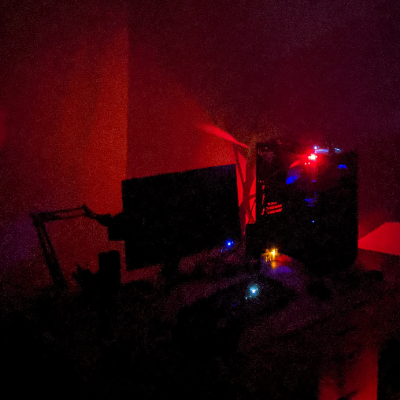- cross-posted to:
- jellyfin
- cross-posted to:
- jellyfin
Hello, not so long ago I discovered Jellyfin, and by extension Radarr, Sonarr, Bazarr, Jackett, etc.
So I immediately installed Jellyfin on a Hetzner server that I already had, powerful enough to have several people consuming content at the same time on these kinds of services.
As the hard drives at home were full, and I didn’t want to sacrifice my bandwidth, I got a Hetzner Storage Box to store the video content on.
So I’ve got Radarr, Sonarr and qBitTorrent installed on my computer, where I manage the downloads, upload them to the Storage Box which is then mounted on the server where Jellyfin is installed to serve the content (see the diagram above, the orange part would be a hypothesis for integrating more storage in the future).
Problems :
- Synchronisation between my local machine and the Hetzner Storage Box: as I was saying, I download everything locally and then upload everything with
rclone syncto the storage. The exact command is:rclone sync /mnt/2TB/Jellyfin HetznerBox:/Jellyfin --exclude "*.!qB" --transfers 10 --fast-list --checkers 500 --progress --log-level DEBUG --log-file=/var/log/rclone/rclone-sync-jellyfin.logThis has several problems, it’s slow, and I have a 1 GB/s fibre connection, and I doubt the problem is with Hetzner… Secondly, if I delete content on the storage server and run the command again, the content will be resynchronised. What’s more, it often happens that I run the command and nothing happens for a long time before the synchronisation starts. Thirdly,rclone syncforces me to keep a local copy of everything. rclone mountdoes not seem to respect the--vfs-cache-max-size: here is the command I use to mount the storage server on the server where Jellyfin is installedrclone mount HetznerBox:/Jellyfin /somepath/Jellyfin/ --vfs-cache-mode full --vfs-cache-max-size 100G --allow-other. But if I rundf -hI get/dev/md2 436G 148G 266G 36% /And if I runsudo du -sh Jellyfin/I get378G Jellyfin/The server only has Jellyfin installed, and I don’t know how to look precisely how much the vfs cache is using.- since Radarr, Sonarr and everything are on my computer, if I install Jellyserr on the same server as Jellyfin (which would be perfect for managing everything when we have several users), it won’t be able to communicate with Radarr and Sonarr.
Possible solutions:
- Don’t use my local machine. I’d like to use the Hetzner server for Radarr, Sonarr, qBitTorrent, etc. but the problem is that I don’t want to store the data on this server, but on the Storage Box. How can I download directly from one server to another?
- Could I use Mullvad VPN only for qBitTorrent downloads (and Jackett) on a Hetzner server, or is that too complicated or foolish?
Edit:
Diagram updated to adapt more to my configuration:

- the Hetzner servers are in Finland
- tried again overnight,
rclone mountworks fine, just extremely slow - downloads of “finished” torrents and those “in progress” are already separated


Hetzner because that’s what I had and have always had a good experience with them, anything else to recommend at the same prices? And that is a reason why I don’t download the content directly on their servers but on my local machine.
The only one in a similar price range that comes to mind is ovhcloud.com, they are a france based company, still not ideal though, as they might require ID.
If money is the biggest factor (which I guess it is), best thing for you to do, might be to move your storage box off of the german servers and onto the finnish servers.
It is already on the finnish rervers! ☺️
Even in the finish location, if any of the “law” fuckers scourging the open trackers, sends an abuse/dmca to Hetzner, you will have some explaining to do as they will raise it as a ticket and require an explanation as to what happened and what is your course of action to remedy it.
Source: my own experience about two months ago (used chatgpt to send them a neutral bussiness respone, worked like a charm)
Use vpn that allows port forwarding, or never touch public trackers at all, or both.
I don’t think I’ve ever given my ID for my Kimsufi or SoYouStart servers. Both of them are OVH subsidiaries.
I’ve heard they do it sometimes for high risk customers. Though they might have stopped some years ago
they can detect piracy regardless. generally they set up honeypots and if you download a torrent from them, they will know and fine you.
How can they if I download everything on my personal computer using a VPN?